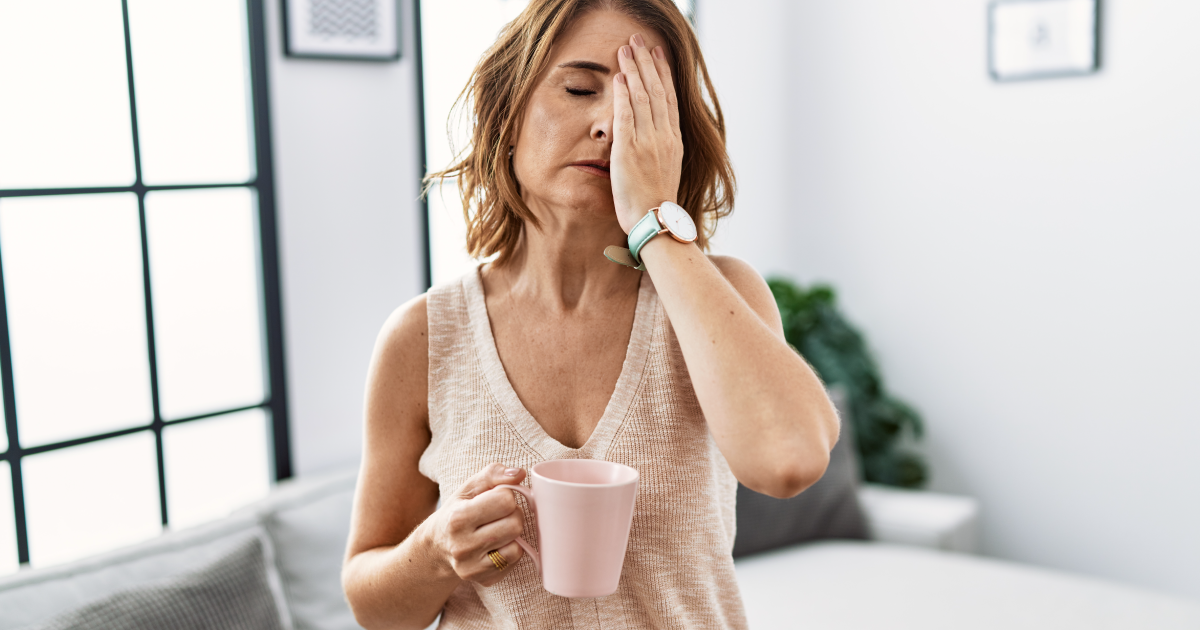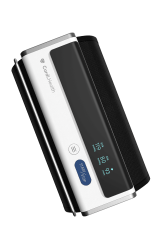Does Caffeine Raise Blood Pressure? What Science Says
Caffeine, commonly found in coffee, tea, and energy drinks, is a daily habit for most people worldwide. But it raises the question: Does caffeine raise blood pressure levels? This is vital because high blood pressure, or hypertension, is a major risk factor for heart disease, stroke, and other cardiovascular problems. Understanding how caffeine and blood pressure relate can help people make informed choices about their daily routines and diets.

Master your heart health now
Take part in our 60sec quiz and get a heart health plan tailored just for you.
Contents
Globally, coffee consumption is widespread, with about 30-40% of adults drinking 3-4 cups of coffee per day, while high blood pressure affects over 30% of the global population.
If you often drink coffee, regularly monitoring your blood pressure is advisable. Tracking it can reveal how lifestyle choices impact your heart health. For an easy and convenient way to monitor your blood pressure, consider using the Cardi Health app. It offers user-friendly features to help you stay on top of your heart health.
To reduce caffeine intake, explore caffeine-free dietary options like herbal teas (chamomile or hibiscus) for relaxation and hydration. Also, lifestyle changes like regular exercise, stress management, and a balanced diet are key to maintaining healthy blood pressure.
Start managing your heart health now!
Find out what works for you with this 60sec quiz.

Does Caffeine Cause High Blood Pressure?
In short, yes, caffeine can reflect on blood pressure response.
The relationship between caffeine and high blood pressure has been extensively studied, and the current consensus is that coffee consumption can increase systolic blood pressure and diastolic blood pressure. However, other research shows that caffeine raises blood pressure in those who do not consume coffee regularly.
Given individual differences in caffeine responses, consulting healthcare providers for personalized advice is essential. Discussing caffeine’s potential impact on your blood pressure with a healthcare professional can help you make informed decisions.
How long does caffeine raise your blood pressure?
A study published in the Sage Journal claims that high blood pressure increases within 1 to 2 hours after consumption and can last for several hours.
Several studies and other data show these blood pressure responses to caffeine:
Short-Term Effects: Consuming caffeine can raise blood pressure in 30 minutes, and it can peak within 1 to 2 hours. This acute elevation can be more significant in individuals who are sensitive to caffeinated drinks.
Duration: The duration of elevated blood pressure can vary but usually lasts for a few hours. In some cases, it may persist for up to six hours or longer.
Tolerance: Regular consumers may develop a degree of tolerance over time, leading to reduced blood pressure responsiveness. However, this can also vary widely among individuals.
Can you drink coffee if you have high blood pressure?
A study published in the Journal of the American Heart Association suggests that people with hypertension who consume two or more cups of coffee daily may potentially increase their risk of experiencing a fatal heart attack, stroke, or other forms of cardiovascular disease. Therefore, it is advised that people with hypertension should avoid excessive coffee drinking.
How much caffeine is too much?
The recommended limit for the average adult can vary depending on individual tolerance, but general guidelines suggest that up to 400 milligrams or up to 4 cups of coffee per day is considered safe for most adults.
For regular coffee drinkers, it’s advisable to monitor your own body’s response to caffeine and adjust your consumption accordingly to stay within recommended limits.
Types of Caffeinated Beverages and Their Effects

Coffee
Content: The caffeine content in coffee can vary significantly depending on the type of coffee beans, brewing method, and serving size.
Effects: Coffee is known for its stimulating effects, including increased alertness and improved concentration. However, too much coffee can lead to jitteriness, increased heart rate, and disrupted sleep.
Tea
Content: Tea contains less caffeine than coffee. An 8-ounce cup of brewed black tea typically contains around 40-70 milligrams of caffeine, while green tea usually has lower caffeine content (around 20-45 milligrams per cup).
Effects: Tea provides a milder energy boost than coffee and is often associated with relaxation. It also contains antioxidants and other health benefits.
Energy Drinks
Content: Energy drinks can contain varying levels of caffeine, often much higher than coffee. Some drinks may have 100 milligrams to over 200 milligrams of caffeine per 8-ounce serving.
Effects: These highly caffeinated beverages are designed to provide a rapid energy boost due to their high caffeine levels. However, excessive consumption can lead to adverse effects like increased heart rate and nervousness.
Other Caffeine Affects on the Body

Caffeine has various effects on the body, including its impact on sleep, digestion, heart rate, dependency, and performance. Understanding how it affects you personally and moderating your intake can help you enjoy its benefits while minimizing potential adverse effects on your health and well-being.
The Common Risks Associated with High Caffeine Consumption
- Sleep disturbances: Caffeine is known to interfere with sleep patterns, primarily by delaying sleep onset and reducing total sleep time. This effect can be especially pronounced when caffeine is consumed in the afternoon or evening. To promote better sleep, it’s advisable to avoid coffee several hours before bedtime, as individual sensitivity to caffeine’s sleep-disrupting effects can vary.
- Anxiety: Caffeine can make you anxious and nervous. It can lead to jitteriness, restlessness, and even panic attacks. If you’re anxious or have experienced adverse reactions to caffeine, consider moderating your caffeinated beverages intake or choosing decaffeinated alternatives.
- Increased heart rate and palpitations: Caffeine can stimulate the heart, leading to an increased heart rate (tachycardia) and palpitations in sensitive individuals. This effect can be more pronounced with higher doses or in people with underlying heart conditions. If you have concerns about your heart health or have experienced heart palpitations after consuming caffeine, consult a healthcare provider and consider reducing caffeine intake.
FAQs

Now, let’s address some frequently asked questions related to the topic.
Should I avoid caffeine if I have high blood pressure?
It is advised that people with high blood pressure should avoid excessive coffee consumption. However, whether or not to avoid caffeine when you have high blood pressure depends on your response and overall health. Monitoring your body’s reactions and seeking professional guidance if needed is crucial.
Does eliminating caffeine lower blood pressure?
A study in the Journal of the American Heart Association shows that eliminating caffeine from your diet can impact blood pressure. However, the extent of that impact can vary from person to person.
Can anxiety cause high blood pressure?
Yes, it can increase blood pressure, but it’s typically a temporary increase in blood pressure rather than chronic hypertension.
Navigate your blood pressure for your heart health!
Kickstart your journey with this 60sec quiz.

Conclusion
In summary, caffeine’s impact on blood pressure varies among individuals. While it can temporarily raise both, systolic blood pressure reading and diastolic blood pressure reading, moderate coffee consumption is generally safe for most adults, with a recommended daily limit of about 400 milligrams, or up to 4 cups of coffee. If possible, limit caffeinated beverages consumption to no more than 1 cup of coffee per day.
However, individual factors like genetics, lifestyle, and overall health are essential to consider.
If you’re concerned about caffeine and its effects on your health or have hypertension, consult a healthcare provider for personalized guidance. They can help you make informed choices for your well-being, taking into account your unique circumstances and needs. Remember that professional advice is key to managing caffeine intake and maintaining optimal health.
Related articles
Best Foods to Lower Cholesterol
Does Drinking Water Lower Blood Pressure?
Causes of High Blood Pressure at Night
10 DASH Diet Breakfasts for a Healthy Start
Heart-Healthy Diet Guide
What Should an 85-Year-Old Blood Pressure Be?
What is Normal Blood Pressure for a 70-Year-Old?
How to Read Blood Pressure: A Comprehensive Guide
Wearing a Heart Monitor for 2 Weeks: What You Need to Know
Manage your heart health now
Find out what works best for you with this 60sec quiz and get your personalized heart health plan.

